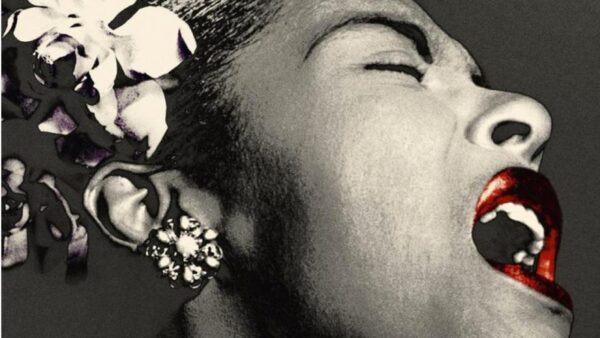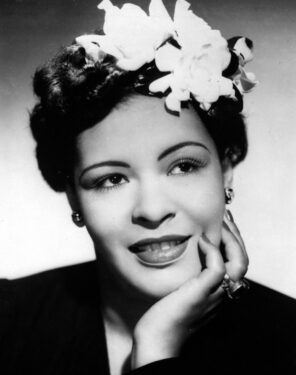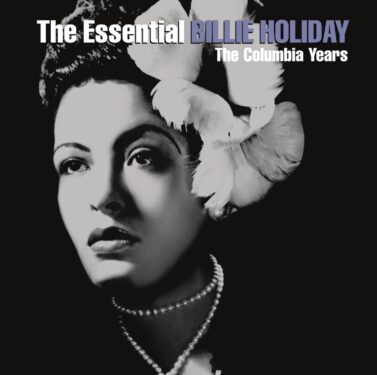
WINDSOR TERRACE — Many of the iconic African American female vocalists of the 20th century endured great hardships before achieving success in the music industry. From Billie Holiday to Etta James, there was a great deal they had to overcome on the road to fame and fortune.
One of the earliest stars of the jazz and rhythm and blues genre was Holiday. Born Eleanora Fagan Gough in Philadelphia in 1915, Holiday developed a love for singing and admired blues and jazz stylists of the day like Bessie Smith and Louis Armstrong.
Her childhood was tumultuous, to say the least. She moved to Baltimore to live with her aunt while her mother looked for work. She often skipped school and was ultimately brought before a juvenile court for truancy when she was 9 years old and spent 11 months in the House of the Good Shepherd, a Catholic reform school, in the care of nuns.
Holiday attended a compulsory Catholic Mass every day and sang everything from the Liber Usualis, the common book of Latin chant, used in all Masses and celebrations in the liturgical year. She was baptized Catholic on March 19, 1925.

Holiday was released to the custody of her mother but returned to the Good Shepherd after a report that a 26-year-old man, whose wife was a friend of her mother, had raped her. She was 11-years-old at the time. Holiday admitted in her autobiography that she tried everything to help support her and her mother during her teen years including singing in nightclubs after hours and even turned to prostitution.
Her fortune changed when renowned record producer John Hammond happened to hear her singing in Harlem. Hammond was instrumental in helping advance the careers of artists including Harry James, Benny Goodman, Count Basie, Pete Seeger, Bob Dylan, and Bruce Springsteen.
In 1935, she was signed to Brunswick Records and released her first charting single, “What a Little Moonlight Can Do.” Her second single, “Twenty-Four Hours a Day,” broke into the pop Top 10.
In 1936, her cover of “Summertime” from the folk opera “Porgy and Bess” reached No. 12 on the charts and has since become a pop standard. “Carelessly” was her sole No. 1 hit, remaining in the top spot for three weeks. But it was two other songs that she will forever be remembered for — the controversial protest ballad “Strange Fruit” and the inspirational “God Bless the Child.”
“Strange Fruit,” described the racially charged tale of a brutal hanging, and was written by a Jewish songwriter and high school teacher from New York named Abel Meeropol. The song laments the lynching of African Americans in the Deep South during the early part of the 20th century. When Holiday heard the poetic lyrics of the song, as a black American she was immediately drawn to its haunting message.
The brutally frank lyrics include the lines, “Southern trees bear a strange fruit; Blood on the leaves and blood on the root … Scent of magnolia, sweet and fresh; Then the sudden smell of burning flesh.” It took an artist of Holiday’s caliber to relay the devastating lyrics by the power of her performance, and send it to No. 16 on the pop charts.
Two years later Holiday, nicknamed “Lady Day” by her friend and music partner Lester Young, released “God Bless the Child,” a song she co-wrote with Arthur Herzog that reached No. 25 in 1941. The song opens with lines taken from the Bible, “Them that’s got shall get, Them that’s not shall lose,” as she reminds us that one must be strong in the face of adversity.
Holiday could have been paraphrasing lines from Matthew 25:29, where he writes, “For everyone who has will be given more, and he will have an abundance. Whoever does not have, even what he has will be taken from him.”
“God Bless the Child” is as much a spiritual as it is a song of empowerment. And it’s also an evocative hymn as she sings, “Mama may have, Papa may have, but God bless the child that’s got his own.”
In her 1956 autobiography “Lady Sings the Blues,” Holiday explained that the song was written after an argument with her mother over money, when her mother said, “God bless the child that’s got his own.” Holiday’s recording of the song received the Grammy Hall of Fame Award in 1976 and was included on the RIAA’s list of “Songs of the Century.”

Holiday experienced subsequent misfortune in the 1950s when she was abusing drugs and drinking. She rebounded again, however, and in 1954 undertook a successful tour of Europe, and then, in 1956, she performed at Carnegie Hall. That same year she published her autobiography, “Lady Sings the Blues,” and released an accompanying album by the same name.
In 1959, she was diagnosed with cirrhosis of the liver and died soon after on July 21, 1959. Her funeral mass was held at the Church of St. Paul the Apostle in New York City and she was buried at St. Raymond’s Cemetery in the Bronx.
Diana Ross starred as Holiday in the acclaimed 1972 film “Lady Sings the Blues,” and U2 paid tribute to her in their Grammy-nominated 1988 ballad, “Angel of Harlem,” writing, “Lady Day got diamond eyes; She sees the truth behind the lies, Angel.” More recently, singer-songwriter Andra Day stars as Holiday in the film, “The United States vs. Billie Holiday.” The movie depicts Holiday as a civil rights activist and addresses the controversy she faced when she was targeted by the government following the release of “Strange Fruit.”
Holiday’s immense talent and remarkable resilience in the face of utter despair made her one of the most enduring artists of her generation. Among the 39 singles she charted between 1935 and 1945, were the No. 1 ballad “Carelessly,” and standards such as “A Fine Romance,” “The Way You Look Tonight,” “Pennies from Heaven,” and “I’ve Got My Love to Keep Me Warm.”
After all these years, Holiday’s musical legacy remains intact. The two defining recordings of her career will always be her brave and electrifying performance of “Strange Fruit,” and the sacred and sublime “God Bless the Child.”
